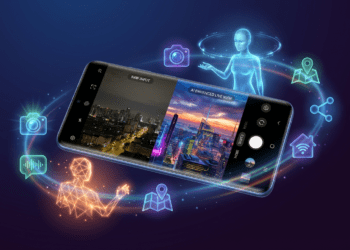The digital publishing world stands at a crossroads. After years of scraping content without compensation, Google has finally begun serious conversations about AI licensing deals with publishers. This shift represents more than just a business pivot it’s a fundamental acknowledgment that the old model of free content extraction is dying.

The Catalyst for Change
The urgency became undeniable when Amazon struck a deal with The New York Times in June 2025. Publishers had been watching their traffic evaporate as AI-powered search summaries replaced traditional click-throughs. Mail Online reported a catastrophic 56% drop in clickthrough rates when AI Overviews appeared in search results.
The numbers tell a stark story. News searches resulting in zero clicks to publisher websites jumped from 56% in May 2024 to nearly 69% by May 2025. Organic traffic plummeted from over 2.3 billion visits at its peak to fewer than 1.7 billion. Publishers weren’t just losing readers they were becoming invisible.
Google’s response? A pilot program with approximately 20 national news outlets, each partnership tailored to specific products like AI Overviews or Gemini chat. It’s a dramatic reversal from the tech giant’s previous stance of taking content without asking.
The Competition Heats Up
While Google played catch-up, competitors had already moved aggressively into the licensing space. OpenAI secured deals with major publishers including The Atlantic, News Corp, Vox Media, and The Guardian. Perplexity launched revenue-sharing agreements with TIME, Fortune, and the LA Times.
The financial stakes are significant. Dotdash Meredith reportedly receives $16 million annually from its licensing deal, while some publishers receive as little as $1 million per year. Google also maintains a $60 million licensing agreement with Reddit and partnerships with The Associated Press.
These deals signal a broader industry acknowledgment: quality content isn’t free, and AI companies need publishers more than they initially admitted.
What Publishers Really Want

Publishers have crystallized their demands into three core areas, each reflecting years of frustration with platform relationships that favored tech companies.
Revenue That Reflects Value
Money matters, but it’s about more than immediate payouts. Publishers want hybrid deals combining flat fees with variable upside tied to usage. As Paul Bannister, chief strategy officer at Raptive, explained: “Publishers should share in that upside over time and not be stuck in some crappy deal where the platform gets all the benefit.”
The principle runs deeper than profit. Publishers have spent years feeding the machine training AI systems, populating search results, keeping users engaged while Google reaped the rewards. Any compensation now feels overdue, but it’s still a crucial line in the sand.
Control Over Content Usage
Beyond money, publishers crave agency over how their content appears and under what terms. This transparency has been frustratingly limited. Publishers often feel they’re asking for something extraordinary when they simply want basic visibility into how their own content gets used.
Jacob Salamon, VP of business development at Trusted Media Brands, emphasized this need: “We need access to data to understand how these changes are affecting our business.” For over a year, publishers have struggled to understand how AI Overviews impact their referrals and visibility, with Google providing no breakdown in its analytics platforms.
Partnership Terms That Restore Stability
Publishers seek something harder to quantify: predictability. Their relationships with tech platforms have been marked by volatility opaque traffic patterns, unpredictable monetization, and shifting rules. With AI, that instability could deepen.
Salamon described TMB’s “dream alliance” as one built on radical transparency, shared value, and co-development. This means not just getting paid, but being involved in how AI products are built, gaining real-time access to data, and getting tools to manage content flow through AI systems.
The Legal Landscape Shifts
The licensing rush occurs against a backdrop of legal uncertainty. The New York Times continues its lawsuit against OpenAI and Microsoft for copyright infringement. Ziff Davis, Mashable’s parent company, also filed suit against OpenAI in April.
While Anthropic and Meta recently won cases using fair use arguments, a pre-publication U.S. Copyright Office report generally favored copyright holders regarding AI training. The growing licensing market suggests tech companies recognize they need to collaborate with publishers rather than simply take their content.
The Traffic Apocalypse Continues
Despite licensing discussions, the fundamental problem persists. Google’s AI-generated summaries and AI Mode continue throttling outbound traffic to publisher sites. Instead of clicking through to articles, users receive information directly from Google’s AI models on the search page.
Matt Prohaska, CEO of Prohaska Consulting, painted a bleak picture: “You’re going to see the continuous erosion of human beings going to web pages to read articles. These deals are going to be the next step in seeing which publishers are going to make it, and which aren’t.”
Industry Transformation Accelerates
The implications extend far beyond individual licensing deals. Large language models are expected to exhaust remaining public training data between 2026 and 2032. Quality content is becoming scarce, forcing tech companies to pay for access. Publishers suddenly hold valuable assets in the AI arms race.
This scarcity creates leverage publishers haven’t enjoyed in decades. The end of free web crawling approaches as AI companies acknowledge they need permission, not just forgiveness, to use copyrighted content.
The Existential Choice
Publishers face an impossible dilemma. Accept licensing deals and risk legitimizing the technology killing their traffic. Refuse participation and risk exclusion from AI results entirely. Sue for copyright infringement and face lengthy legal battles while competitors sign deals.
The choice reflects a broader industry transformation. Search as we know it is ending, replaced by AI conversations. Direct publisher relationships become critical as traditional discovery mechanisms disappear.
Looking Forward

Google’s licensing initiative isn’t just another tech-media partnership it’s an acknowledgment that the old model is dead. The pilot could create reliable revenue streams for publishers while keeping Google’s AI fueled by quality journalism. But it also confirms that the era of free traffic from search is ending.
Publishers must navigate a future where AI intermediaries control audience access, content value is recognized but traffic isn’t guaranteed, and survival depends on adapting to AI-first distribution. Those who move quickly and negotiate skillfully may find new revenue streams. Those who hesitate may find themselves locked out of the AI-powered future of information discovery.
The web as we knew it is over. The AI-mediated era has begun, and publishers are scrambling to secure their place in this new ecosystem before the transformation is complete.
Sources
- Digiday: What publishers want from Google’s AI licensing deal
- FourWeekMBA: Google’s AI Licensing Pivot: A Seismic Shift in Digital Publishing
- Mashable: Google is reportedly pursuing AI licensing deals with news publishers
- Dataconomy: Google Now Wants To Pay Publishers For Their Content To Train Its AI









Comments 1